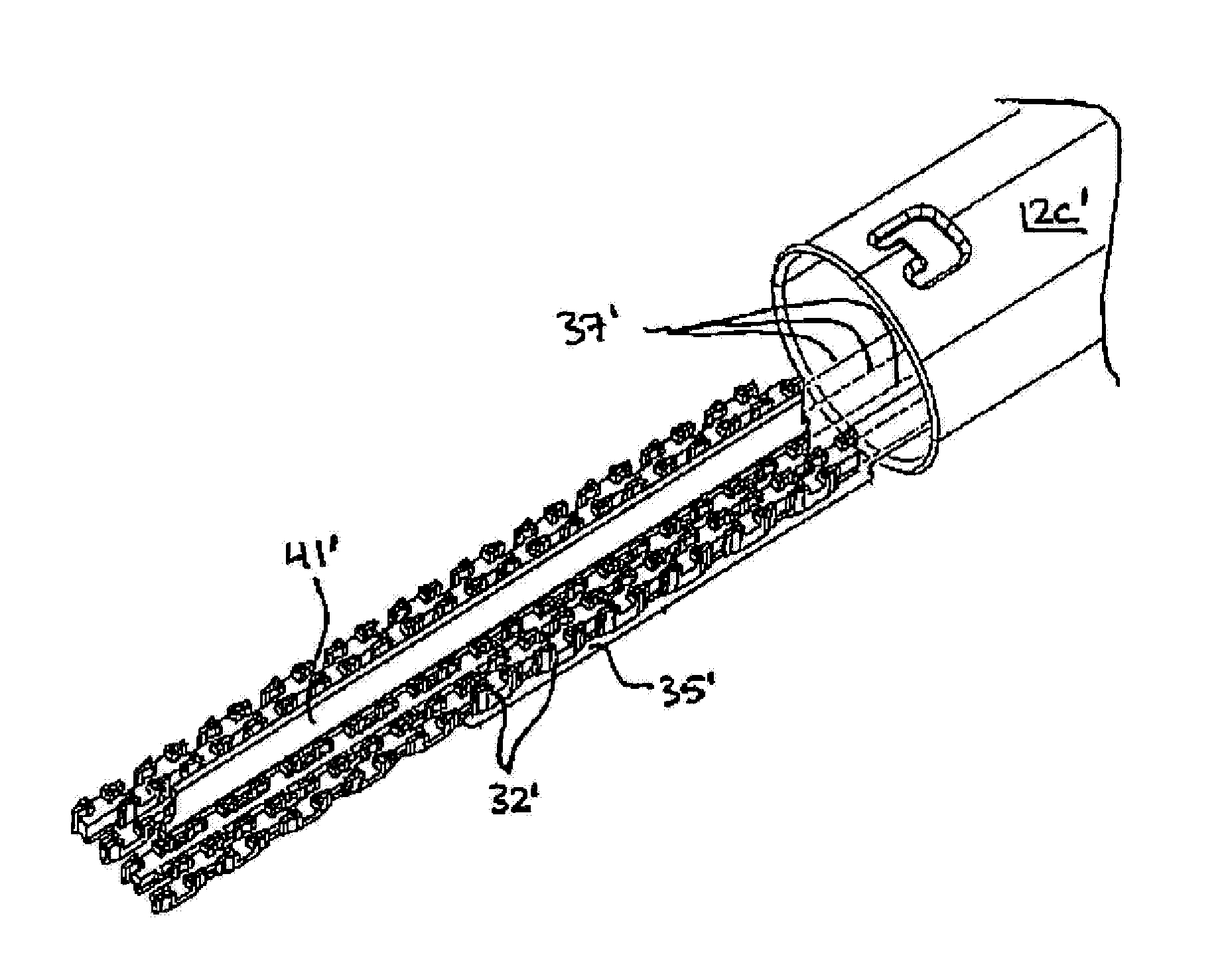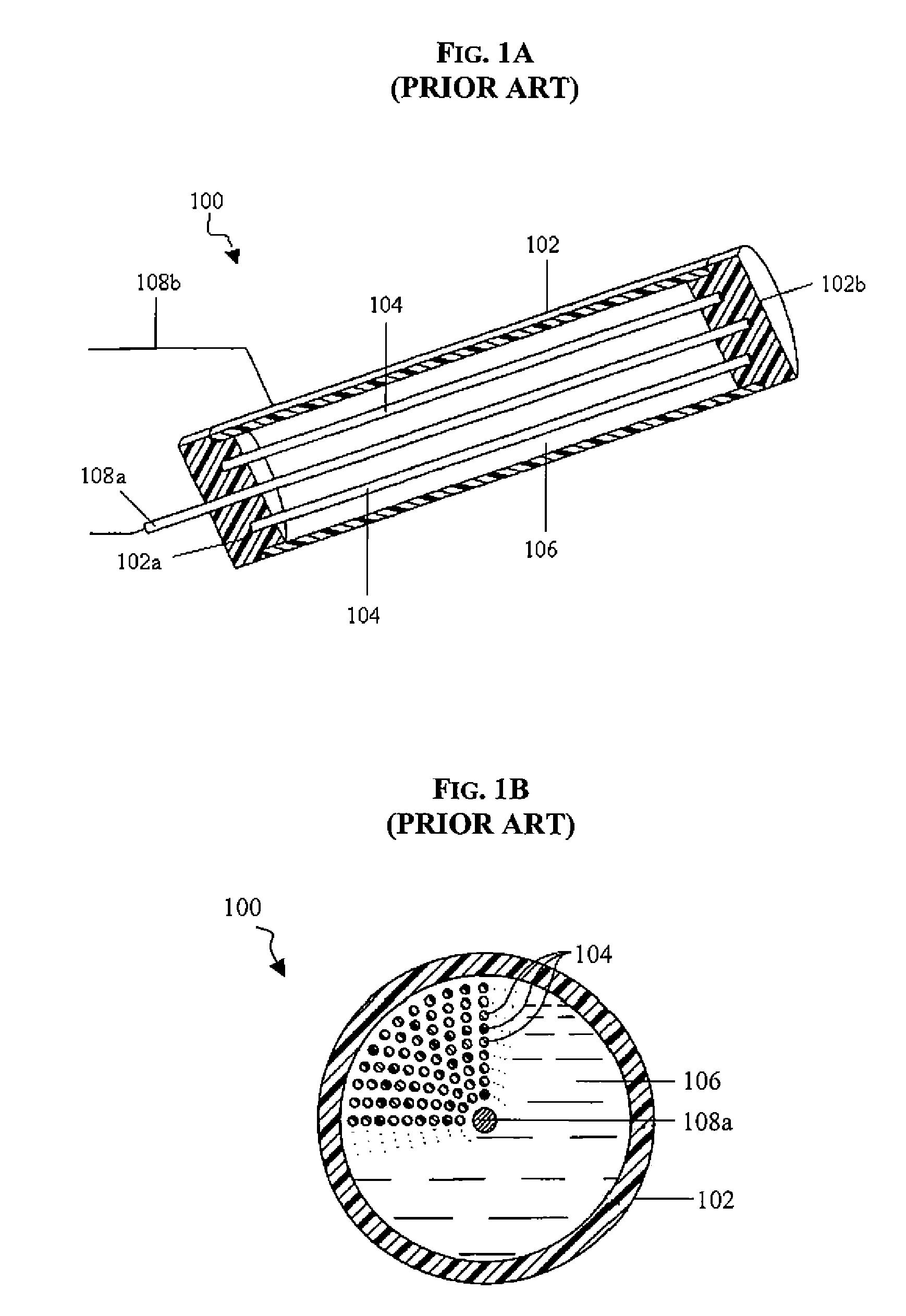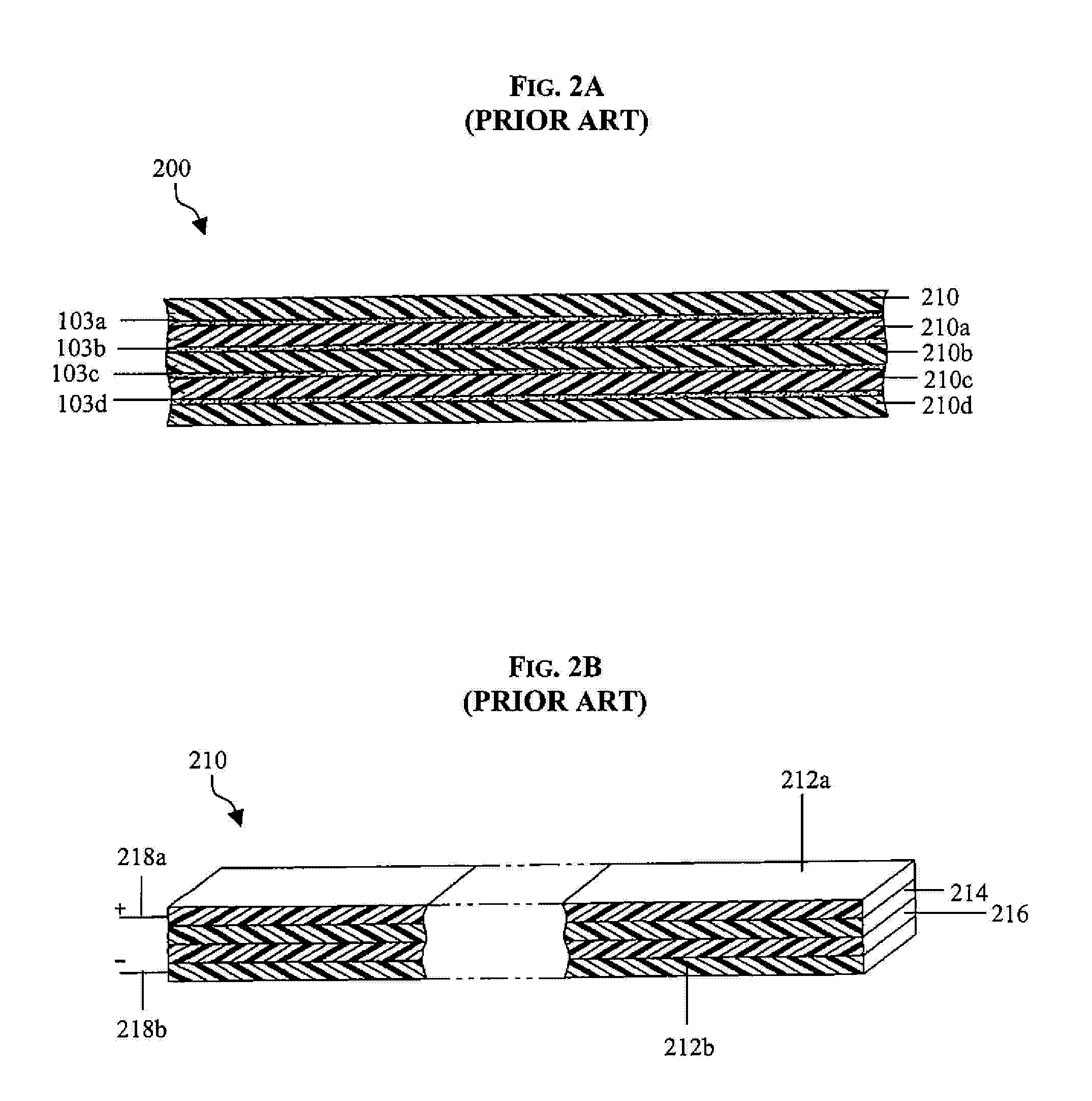Electroactive polymer-based actuation mechanism for linear surgical stapler
a linear surgical and actuation mechanism technology, applied in the field of surgical devices, can solve the problems of large force required to effect articulation and actuation, force change, and exceed the hand strength of surgeons
- Summary
- Abstract
- Description
- Claims
- Application Information
AI Technical Summary
Benefits of technology
Problems solved by technology
Method used
Image
Examples
Embodiment Construction
[0039] The present invention generally provides methods and devices for effecting movement of one or more components of a surgical stapler. In one exemplary embodiment, a surgical stapler is provided having a stapling mechanism or end effector that is movably coupled to a distal end of an elongate shaft. An electrically expandable and contractible actuator, such as an electroactive polymer actuator, can be used to pivotally or angularly adjust a position of the stapling mechanism relative to the elongate shaft by delivering energy to the electroactive polymer actuator. In another embodiment, an electroactive polymer actuator can be used to actuate the end effector, thereby driving one or more staples, and preferably at least two linear rows of staples, into tissue. The actuator can alternatively or additionally drive a blade distally to cut tissue being stapled. A person skilled in the art will appreciate that the surgical stapler can have a variety of configurations, and that the e...
PUM
| Property | Measurement | Unit |
|---|---|---|
| voltage potential | aaaaa | aaaaa |
| size | aaaaa | aaaaa |
| energy | aaaaa | aaaaa |
Abstract
Description
Claims
Application Information
 Login to View More
Login to View More - R&D
- Intellectual Property
- Life Sciences
- Materials
- Tech Scout
- Unparalleled Data Quality
- Higher Quality Content
- 60% Fewer Hallucinations
Browse by: Latest US Patents, China's latest patents, Technical Efficacy Thesaurus, Application Domain, Technology Topic, Popular Technical Reports.
© 2025 PatSnap. All rights reserved.Legal|Privacy policy|Modern Slavery Act Transparency Statement|Sitemap|About US| Contact US: help@patsnap.com



